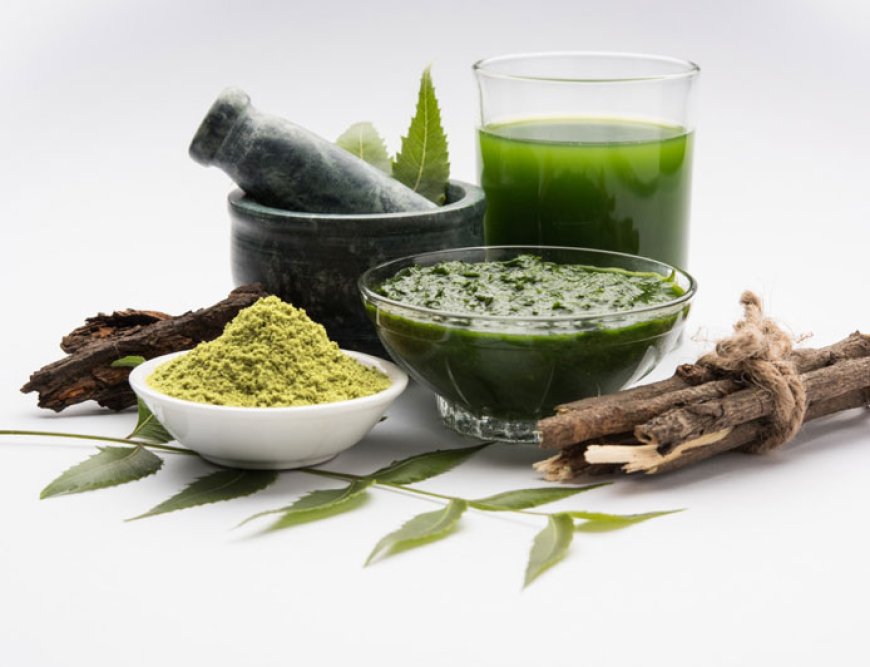Top Ayurvedic Herbs and Their Health Benefits
Discover the top Ayurvedic herbs and their numerous health benefits, including stress reduction, anti-inflammatory properties, and cognitive enhancement, for a holistic approach to wellness.

Ayurveda, the ancient Indian system of medicine, has long been known for its extensive use of natural herbs to promote health and well-being. Many of these herbs have gained global popularity due to their numerous health benefits and minimal side effects. In this article, we will explore some of the top Ayurvedic herbs and their remarkable health benefits.
Ashwagandha (Withania somnifera)
Ashwagandha, also known as Indian Ginseng, is a powerful adaptogenic herb used for centuries in Ayurveda for its stress-reducing, rejuvenating, and immunomodulatory properties. It is known to improve mental and physical stamina, reduce anxiety and depression, enhance cognitive function, and support a healthy immune system.
Turmeric (Curcuma longa)
Turmeric is a vibrant yellow spice widely used in Indian cooking and Ayurvedic medicine. Its active component, curcumin, has potent anti-inflammatory, antioxidant, and anticancer properties. Turmeric is known to alleviate joint pain, reduce the risk of heart disease, improve brain function, and support digestive health.
Brahmi (Bacopa monnieri)
Brahmi, also known as Bacopa, is a memory-boosting herb used in Ayurveda for its nootropic effects. It enhances cognitive function, supports mental clarity and focus, and reduces stress and anxiety. Studies have shown that Brahmi can improve memory retention, learning ability, and overall cognitive function.
Triphala
Triphala, meaning "three fruits," is a combination of three powerful Ayurvedic herbs: Amalaki, Bibhitaki, and Haritaki. This potent herbal blend is known for its detoxifying, digestive, and rejuvenating properties. Triphala supports regular bowel movements, promotes healthy digestion, and helps maintain healthy blood sugar levels.
Neem (Azadirachta indica)
Neem is a versatile Ayurvedic herb with powerful antibacterial, antifungal, and antiviral properties. It is used in Ayurveda to treat skin conditions such as acne, eczema, and psoriasis, as well as to alleviate fever, inflammation, and infections. Neem is also used in oral care to prevent gum disease and maintain overall dental health.
Tulsi (Ocimum sanctum)
Tulsi, also known as Holy Basil, is a sacred herb in Ayurveda, revered for its powerful adaptogenic, antioxidant, and anti-inflammatory properties. It helps reduce stress, supports the immune system, and promotes respiratory health. Tulsi is often consumed as a tea or used as an essential oil for its numerous health benefits.
Shatavari (Asparagus racemosus)
Shatavari is a potent Ayurvedic herb commonly used as a women's tonic to support reproductive health and hormonal balance. It helps alleviate symptoms of menopause and premenstrual syndrome, improves fertility, and supports lactation. Shatavari is also beneficial for men, as it promotes healthy sperm production and supports overall vitality.
Guggul (Commiphora mukul)
Guggul is a potent Ayurvedic herb used for its lipid-lowering, anti-inflammatory, and antioxidant properties. It helps reduce cholesterol levels, supports healthy weight management, and promotes joint health. Guggul is also used in Ayurveda to treat skin conditions, including acne and psoriasis.
Licorice (Glycyrrhiza glabra)
Licorice, known as Mulethi in Ayurveda, is a sweet and flavorful herb used for its adaptogenic, anti-inflammatory, and immune-boosting properties. It is commonly used to soothe respiratory ailments, such as coughs, asthma, and bronchitis, as well as to alleviate gastrointestinal issues, including heartburn and ulcers. Licorice also supports liver health and has been shown to have potent antiviral effects.
Amla (Emblica officinalis)
Amla, also known as Indian Gooseberry, is a powerful antioxidant-rich fruit used in Ayurveda for its numerous health benefits. It is a natural source of Vitamin C and supports immune function, digestive health, and liver detoxification. Amla is also used for its anti-aging properties, promoting skin health, and maintaining healthy hair.
Ginger (Zingiber officinale)
Ginger is a warming, aromatic root used extensively in Ayurveda for its digestive, anti-inflammatory, and pain-relieving properties. It helps alleviate nausea, indigestion, and bloating, as well as reduce muscle pain and joint inflammation. Ginger is also known to support cardiovascular health by reducing blood pressure and cholesterol levels.
Moringa (Moringa oleifera)
Moringa, also known as the Drumstick tree, is a nutrient-dense plant used in Ayurveda for its numerous health benefits. It is rich in vitamins, minerals, and antioxidants, and is known to support immune function, improve digestion, and reduce inflammation. Moringa leaves are often consumed as a superfood, providing essential nutrients to maintain overall health.
The use of Ayurvedic herbs in modern healthcare provides a holistic approach to wellness, incorporating the wisdom of ancient practices to promote health and prevent disease. These herbs offer a natural, effective, and safe alternative to synthetic medications, addressing the root cause of various health conditions while supporting overall well-being. Embracing Ayurveda and incorporating these powerful herbs into your daily routine can significantly improve your health and enhance your quality of life.

 vasundhara
vasundhara 





